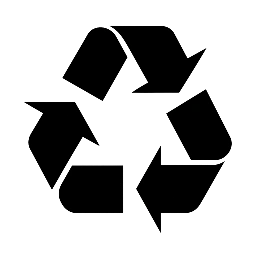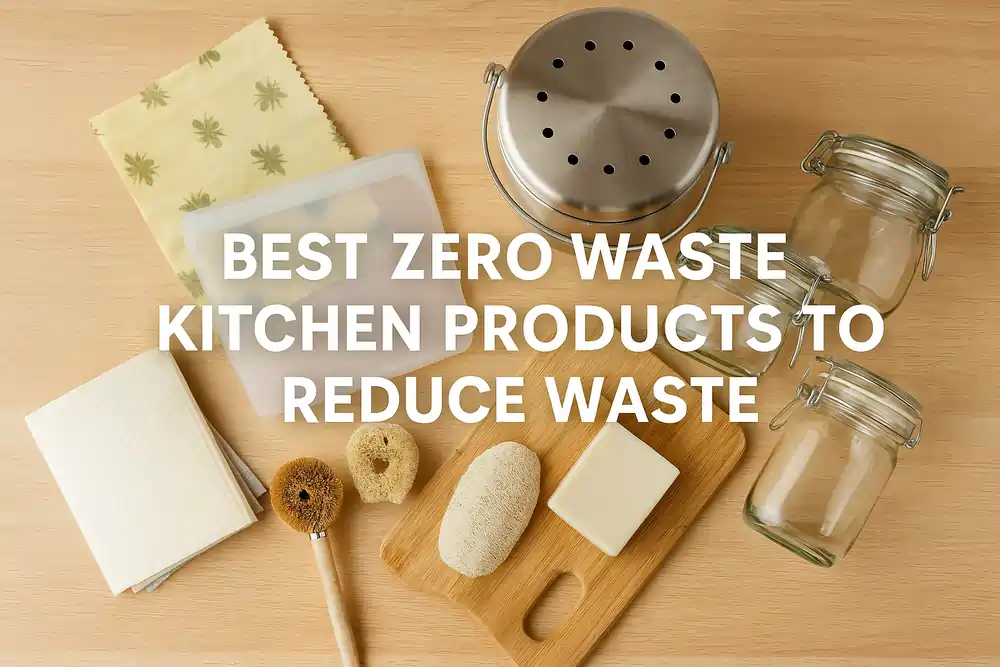Creating a zero-waste kitchen is one of the most impactful steps you can take toward sustainable living. Your kitchen is the heart of your home—but it’s also where the most waste is generated. From single-use plastics and food packaging to disposable cleaning supplies and uneaten food, the average household kitchen contributes heavily to landfill waste.
The good news? With the right tools and a few mindful swaps, you can drastically reduce your kitchen waste—without sacrificing convenience or cleanliness.
In this guide, we’ll explore the best zero-waste kitchen products, how to use them, and practical tips to help you build a kitchen that’s efficient, eco-friendly, and waste-free.
🌿 Why Switch to a Zero-Waste Kitchen?
- Reduce landfill waste
- Save money in the long run
- Minimize plastic use and microplastics
- Support a healthier lifestyle
- Encourage mindful consumption and cooking
A zero-waste kitchen is about making intentional choices—buying reusable over disposable, composting rather than throwing away, and simplifying your lifestyle for a greener tomorrow.
🛠️ Essential Zero Waste Kitchen Products
1. Reusable Food Storage
➤ Beeswax Wraps
Replace plastic wrap with reusable, compostable beeswax wraps. They mold easily over containers and food, keeping items fresh while reducing waste.
- Lifespan: ~1 year
- Compostable when worn out
➤ Silicone Food Bags & Lids
Perfect for leftovers, meal prep, or freezer storage. These durable bags replace hundreds of single-use plastic zip bags annually.
- Dishwasher-safe
- Airtight and leakproof
➤ Glass Storage Jars
Ideal for storing bulk foods like grains, legumes, nuts, and spices. They help reduce packaging waste and keep ingredients fresher longer.
- Look for: Airtight clamp or mason jars
- Bonus: Great for DIY snacks, sauces, and pickling
2. Eco-Friendly Cleaning Supplies
➤ Swedish Dishcloths
Highly absorbent and reusable dishcloths that can replace up to 15 rolls of paper towels. Washable and compostable.
➤ Bamboo Dish Brushes
Ditch plastic sponges for wooden brushes with replaceable heads. Look for options with plant-based bristles.
➤ Loofah Sponges
Made from dried plant fiber, these work well for scrubbing dishes and compost after use.
➤ Solid Dish Soap Bars
An excellent plastic-free alternative to liquid soap in bottles. Look for vegan, non-toxic formulas like the No Tox Life Dish Block.
3. Waste Reduction Tools
➤ Countertop Compost Bin
Start composting food scraps right in your kitchen. Stainless steel or ceramic bins with charcoal filters control odor and look stylish.
➤ Worm Composters (Vermicompost)
Perfect for small spaces. Worm bins can live under the sink and turn kitchen waste into rich soil.
➤ Reusable Produce Bags
Replace plastic produce bags at the store with mesh cotton bags. Washable and durable.
4. Sustainable Cooking Tools
➤ Bamboo Cutting Boards
Natural, renewable, and free from harmful microplastics. Durable and easy to maintain.
➤ Cast Iron & Stainless Steel Cookware
Long-lasting alternatives to nonstick pans with toxic coatings. Properly maintained, these can last a lifetime.
➤ Reusable Coffee Filters
Choose stainless steel or organic cotton filters to reduce paper waste in your morning routine.
🍎 Zero-Waste Kitchen Habits
Having the right tools is just part of the journey. Here are habits to truly embrace the zero-waste lifestyle:
✅ Meal Planning
Reduces overbuying and food waste. Plan meals around what’s in season and what’s already in your fridge.
✅ Buy in Bulk
Purchase grains, beans, nuts, and spices from bulk bins using your own jars or cloth bags to eliminate packaging waste.
✅ Upcycle Food Scraps
- Citrus peels → Natural cleaner or infused vinegar
- Veggie scraps → Homemade broth
- Stale bread → Croutons or breadcrumbs
- Coffee grounds → Fertilizer or body scrub
✅ Compost Everything You Can
Even if you don’t have a backyard, many cities offer compost pick-up services or community drop-offs.
🛒 Where to Find These Products
You can find zero-waste kitchen essentials at:
- Local health food stores
- Zero-waste online shops (e.g. Package Free Shop, EarthHero)
- Farmers’ markets
- Amazon and Etsy (look for plastic-free packaging!)
📌 Getting Started: Your First 5 Swaps
Feeling overwhelmed? Start small. Replace just one item per week. Here’s a great starter list:
- Replace paper towels → Swedish dishcloths
- Ditch plastic wrap → Beeswax wraps
- Switch to bar soap → Solid dish soap
- Start composting → Get a countertop compost bin
- Upgrade storage → Use glass jars or silicone bags
Each small change makes a big difference over time.
🧭 Final Thoughts: Building a Kitchen That Gives Back
Creating a zero-waste kitchen isn’t about perfection—it’s about progress. With thoughtful swaps and consistent habits, you’ll cut down your trash, simplify your life, and reduce your environmental impact in a big way.
Every sustainable product you bring into your home is an investment in a cleaner planet and a healthier future.


Leave a Reply